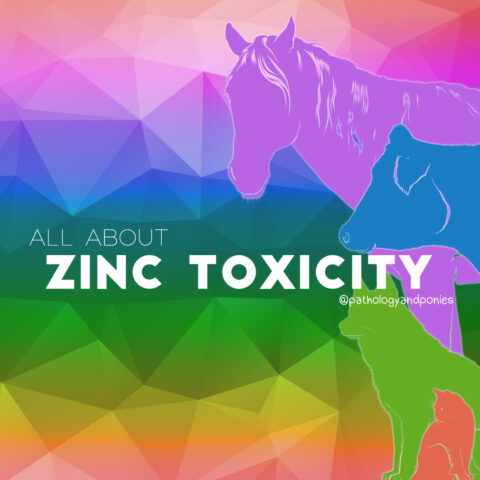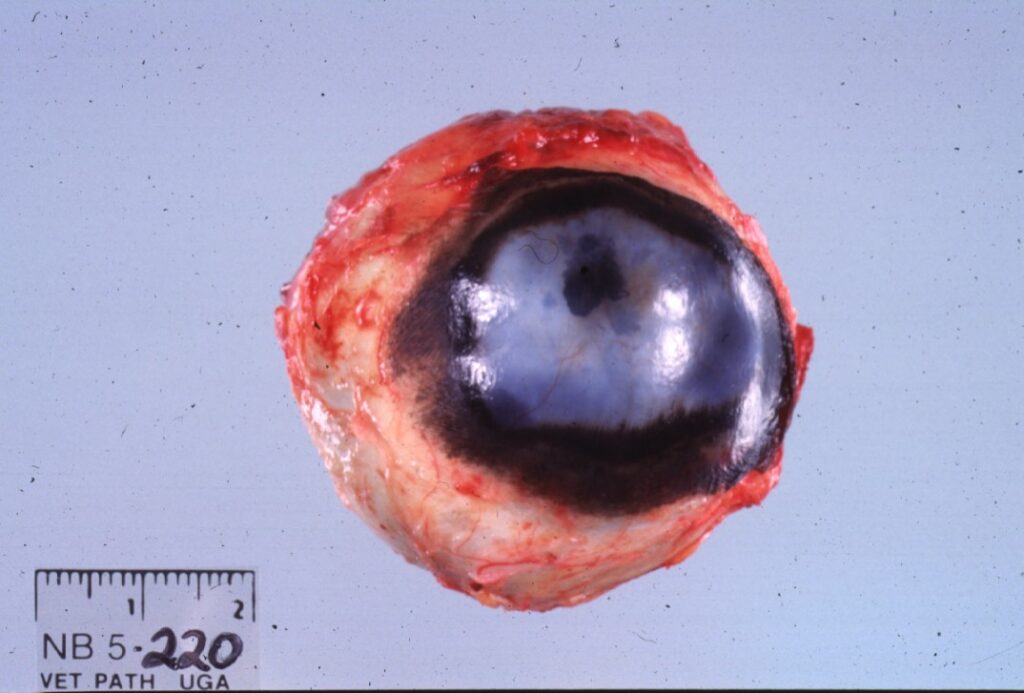
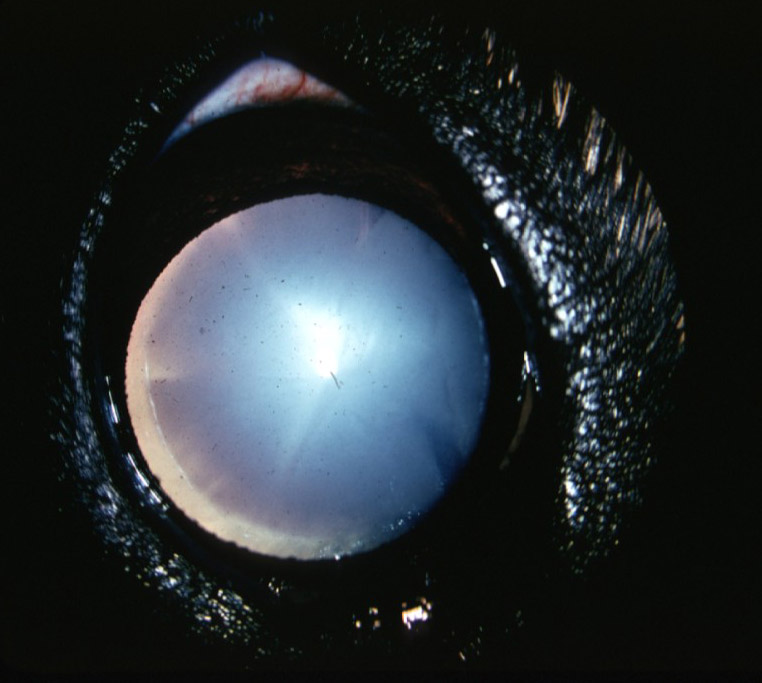
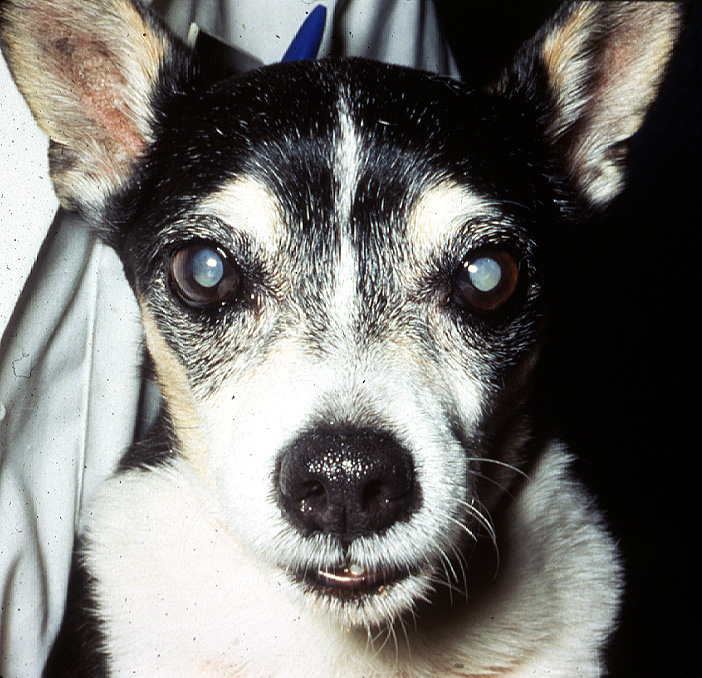
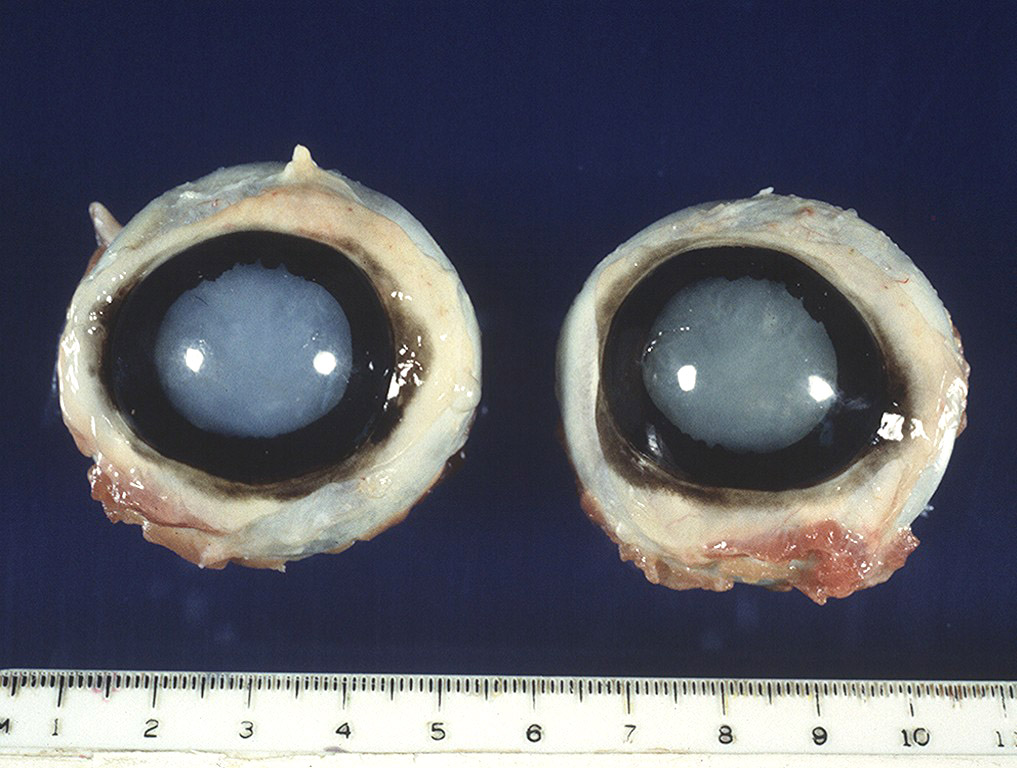
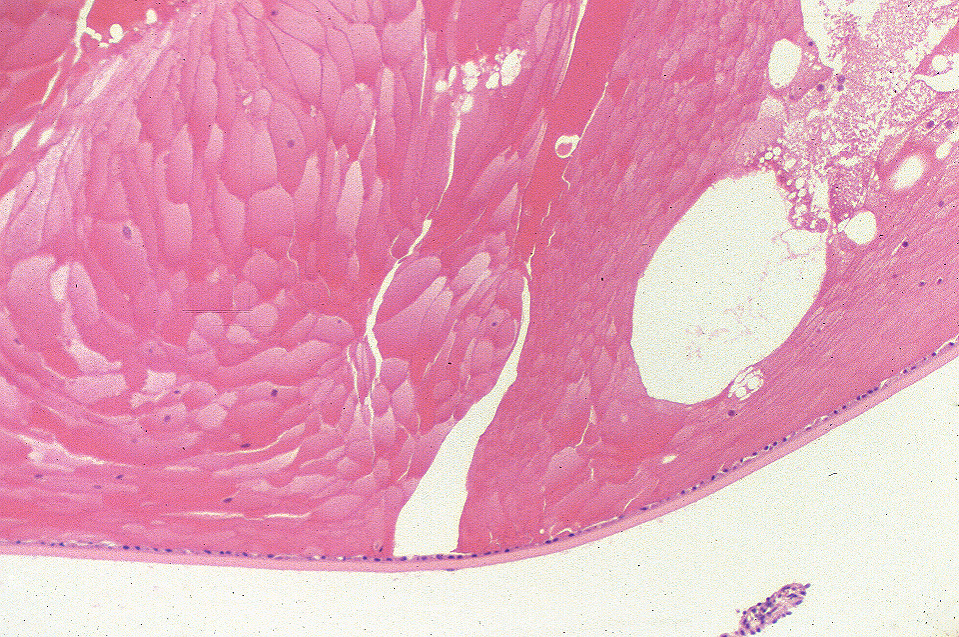

Today’s path rounds are on 𝐜𝐚𝐭𝐚𝐫𝐚𝐜𝐭𝐬!
𝐖𝐡𝐚𝐭 𝐢𝐬 𝐢𝐭?
𝐂𝐚𝐭𝐚𝐫𝐚𝐜𝐭𝐬 are the most important condition affecting the 𝐥𝐞𝐧𝐬 of the eye, which orients light entering the eye onto the retina. Normal lenses are perfectly clear, but in cataracts they end up becoming cloudy!
𝐖𝐡𝐨 𝐠𝐞𝐭𝐬 𝐢𝐭?
Any species can get this! We most commonly see this in older animals or animals with 𝐝𝐢𝐚𝐛𝐞𝐭𝐞𝐬 𝐦𝐞𝐥𝐥𝐢𝐭𝐮𝐬.
𝐖𝐡𝐚𝐭 𝐜𝐚𝐮𝐬𝐞𝐬 𝐢𝐭?
There are many different causes of cataracts, including 𝐜𝐨𝐧𝐠𝐞𝐧𝐢𝐭𝐚𝐥 (animal was born with it), trauma to the eye, 𝐞𝐧𝐝𝐨𝐜𝐫𝐢𝐧𝐞 𝐝𝐢𝐬𝐞𝐚𝐬𝐞 (disease of hormone-producing organs), nutritional problems, exposure to sunlight and even some toxins. However, most cases of cataracts do not have one specific problem identified. In these cases, it is thought that the accumulation of environmental, dietary and other problems throughout the entire lifespan of the eye eventually causes a cataract. This is potentially why these are more common in older animals.
𝐖𝐡𝐲 𝐢𝐬 𝐭𝐡𝐢𝐬 𝐚 𝐩𝐫𝐨𝐛𝐥𝐞𝐦?
As mentioned, the lens is supposed to be perfectly clear! When a cataract occurs, the lens fibres lose their transparency, causing the lens to become clouded. These animals typically show signs of blindness. While cataracts are not painful, the lens is at an increased risk of rupture or 𝐥𝐮𝐱𝐚𝐭𝐢𝐨𝐧 (slipping out of position), which can be extremely painful. Additionally, continued degeneration of the lens fibers may lead to lens fibre material being released into the liquid components of the eye, causing severe inflammation.
𝐇𝐨𝐰 𝐢𝐬 𝐢𝐭 𝐝𝐢𝐚𝐠𝐧𝐨𝐬𝐞𝐝?
Diagnosis is generally fairly straightforward, as the cloudiness of the lens is easily identified on examination of the eye.
How is it treated?
Treatment typically involves surgical removal of the lens by a process called 𝐩𝐡𝐚𝐜𝐨𝐞𝐦𝐮𝐥𝐬𝐢𝐟𝐢𝐜𝐚𝐭𝐢𝐨𝐧. The remaining eye will still not be visual, but it removes some of the risks associated with cataracts!
𝐏𝐡𝐨𝐭𝐨𝐬
1-4) Examples of eyes with cataracts!
5-6) What cataracts look like under the microscope! Normal lens fibers are very long. In cataracts, they become round and plump, which are called 𝐌𝐨𝐫𝐠𝐚𝐠𝐧𝐢𝐚𝐧 𝐠𝐥𝐨𝐛𝐮𝐥𝐞𝐬. Pretty!
𝐒𝐨𝐮𝐫𝐜𝐞𝐬
Maxie, G. Jubb, Kennedy and Palmer’s Pathology of Domestic Animals, Volume 1. Sixth Edition.
Gelatt KN. Lens. Merck Veterinary Manual 2015.
Photos 1-6 © Noah’s Arkive contributors Dhein, Crowell, Ward, Leipold, Ramos licensed under CC BY-SA 4.0.




